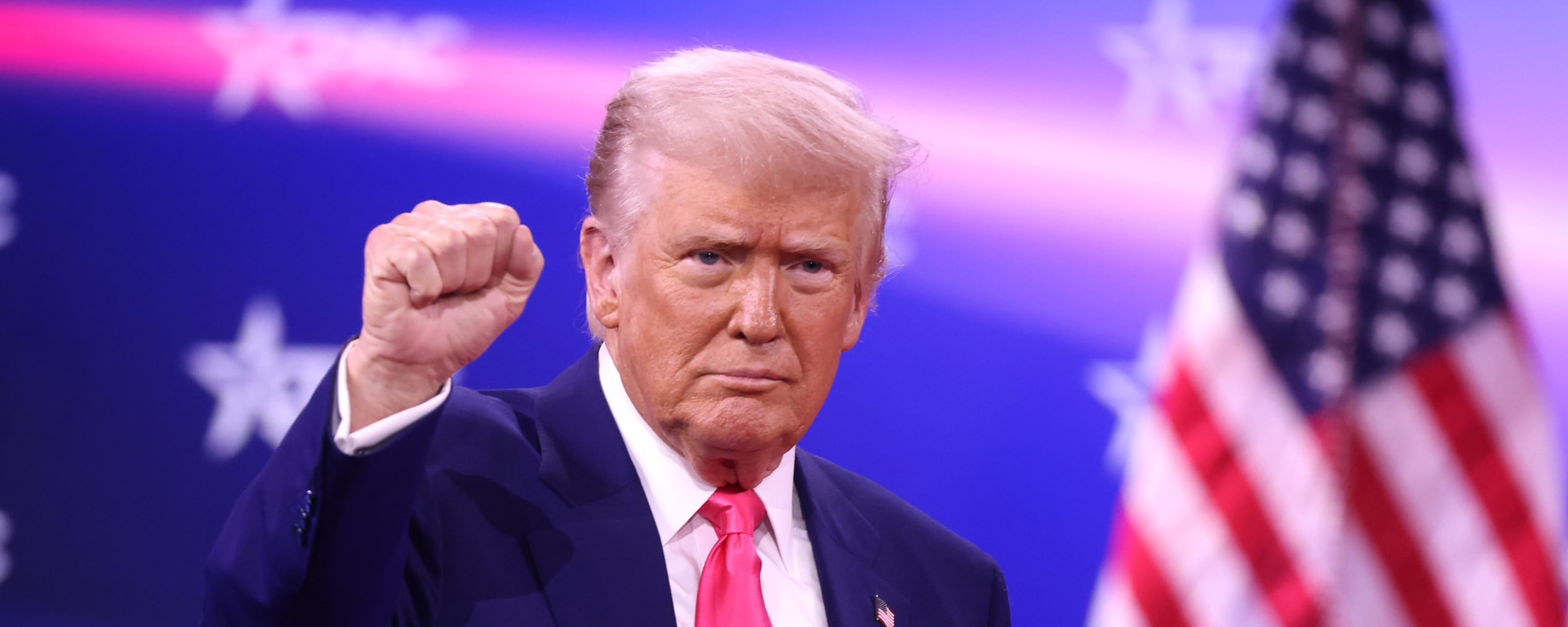EU and Global South must work on international cooperation
“‘‘Trump blows away all post-war achievements’’
European leaders must not get caught up in the chaos Donald Trump is creating, writes MO* journalist John Vandaele. Trump wants to eat both sides of the argument and is simply not playing the game fairly.
This article was translated from Dutch by kompreno, which provides high-quality, distraction-free journalism in five languages. Partner of the European Press Prize, kompreno curates top stories from 30+ sources across 15 European countries. Join here to support independent journalism.
US President Donald Trump is well on his way to undermining key post-war achievements of prosperity and peace. Those achievements were based on the experiences that had just preceded them: the trade wars and monetary chaos of the 1930s, and World War II itself.
The first realisation hit world trade: the intention was to work towards a stable and predictable trading environment through cooperation and global negotiations. This happened from 1945 to 1994 in the negotiating rounds of the General Agreement on Tariffs and Trade (GATT) and later in the bosom of the World Trade Organisation (WTO). There was much justified criticism of those organisations for their lack of ecological and social standards, but few people at the time realised what it meant to live in trade uncertainty and chaos. Those who had lived through the 1930s did realise this: it is like having the air you breathe cut off. Trump is now re-creating that uncertainty and chaos, destroying a first post-war realisation. That uncertainty and unpredictability are troublesome for any business, and at least temporarily suppress investment.
The second realisation concerned the financial system: pursuing monetary stability through cooperation, with the creation of the International Monetary Fund (IMF) and the World Bank, and with the dollar as the world's reserve currency. Article 1 of the IMF is all about cooperation. When I first read that, I thought it was just a boring article. Only now do I realise how valuable it is. The World Bank was supposed to realise international lending to first rebuild Europe and later advance the Global South.
Doping for purchasing power
The dollar's central role in global monetary affairs has great advantages for the US: since most countries want to hold the global reserve currency, it is in high demand and its rate is always somewhat stronger than the economy of the country with the global reserve currency. As a result, the interest rate needed to raise money is also somewhat lower. These are not insignificant advantages: it is a kind of doping for your international purchasing power and an injection for your economy (via the lower interest rate).
It may be said that the US claimed that role at the time, as the economist John Maynard Keynes proposed in 1944 the creation of a new global reserve currency, the bancor, because, as a Briton, he also knew that your economy has to be strong enough to carry the world currency: that higher rate sometimes makes things more difficult on the trade front and can lead to de-industrialisation. But whoever accepts the pleasures must also bear the burdens. Part of their monetary privilege the US could invest in global services such as keeping shipping lanes safe, with its overwhelming military power. That power of course helped to pull the rug out from under them in many other areas, think access to resources or political support. All these benefits of monetary and military leadership are hard to calculate, but they are real.
In this sense, we should strongly downplay the rhetoric that Trump constantly regurgitates, as if the US has been grossly abused in recent decades. To this end, he only compares the balance of goods and ignores the services and other benefits of his strong position. That is simply unfair. So how do you explain that the US has remained the richest country in the world?
If, like Trump, you no longer want to take on that central role, then you should not want to have it both ways: wanting to remain the reserve currency without taking on the essential downside. For the European Union, this is an opportunity to put forward the euro as a partial alternative.
Violating sacred rule
A third crucial post-war realisation was: achieve greater geopolitical stability by writing in the UN Charter that countries must respect each other's territory. That rule has been violated repeatedly in recent decades, but all in all, there were far more violent border violations in the 80 years before 1945 than in the 80 years after. Putin's invasion of Ukraine is one of the most serious violations, but by the way he deals with it, and especially with his demand that Greenland, the Panama Canal and Canada belong to the US, Trump undermines that sacred 1945 rule, and makes it clear that he has no respect for the UN whatsoever.
A final intention, born of the experience of the 1930s and the world war that followed, was the promise to cooperate on international health issues (in the World Health Organisation WHO), on development issues and, much later, on climate change. The word 'cooperation' does not seem to be in the Trump administration's dictionary. The only thing left is to use your weight to gain as much of your own advantage as possible. That is unacceptable to the rest of the world, which is largely made up of countries much poorer than the US. Understandably, many Americans are dissatisfied with globalisation because they have not benefited from it. But that was mainly due to internal US policies of unequal income distribution.
Countries have the right to orient themselves more regionally and less globally. But wanting to solve internal social problems or economic choices by rolling back all post-war achievements that made the world more prosperous and secure is inappropriate and ineffective. The EU, other countries of the West and the leaders of the Global South must not allow themselves to be drawn into Trump's chaos. They must reshape the idea of international cooperation.
 This article was translated from Dutch by kompreno, which provides high-quality, distraction-free journalism in five languages. Partner of the European Press Prize, kompreno curates top stories from 30+ sources across 15 European countries. Join here to support independent journalism.
This article was translated from Dutch by kompreno, which provides high-quality, distraction-free journalism in five languages. Partner of the European Press Prize, kompreno curates top stories from 30+ sources across 15 European countries. Join here to support independent journalism.
Lees ook
If you are proMO*...
Most of our work is published in Dutch, as a proMO* you will receive mainly Dutch content. That said we are constantly working to improve our translated work. You are always welcome to support us both as a proMO* or by supporting us with a donation. Want to know more? Contact us at promo@mo.be.
You help us grow and ensure that we can spread all our stories for free. You receive MO*Magazine and extra editions four times a year.
You are welcome at our events free of charge and have a chance to win free tickets for concerts, films, festivals and exhibitions.
You can enter into a dialogue with our journalists via a separate Facebook group.
Every month you receive a newsletter with a look behind the scenes.
You follow the authors and topics that interest you and you can keep the best articles for later.
Per month
€4,60
Pay monthly through domiciliation.
Meest gekozen
Per year
€60
Pay annually through domiciliation.
For a year
€65
Pay for one year.
Are you already proMO*
Then log in here

